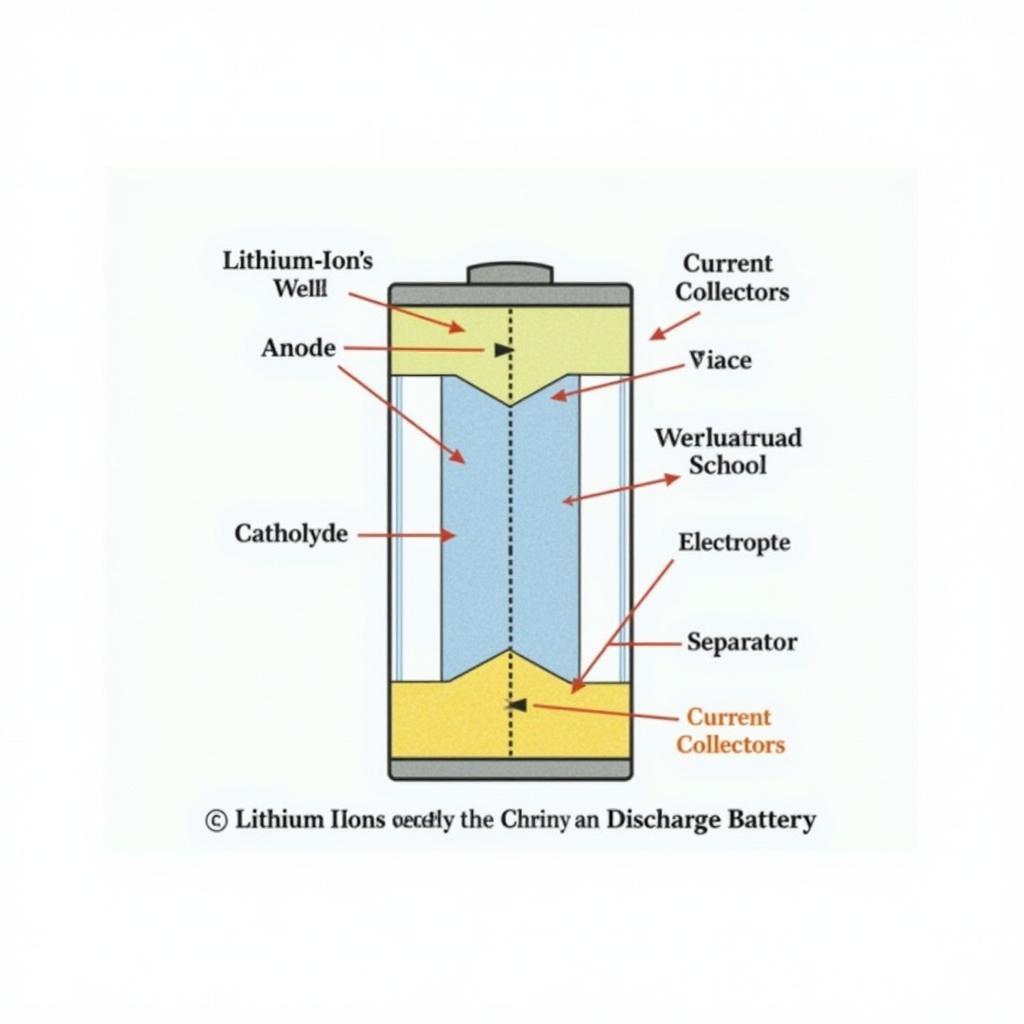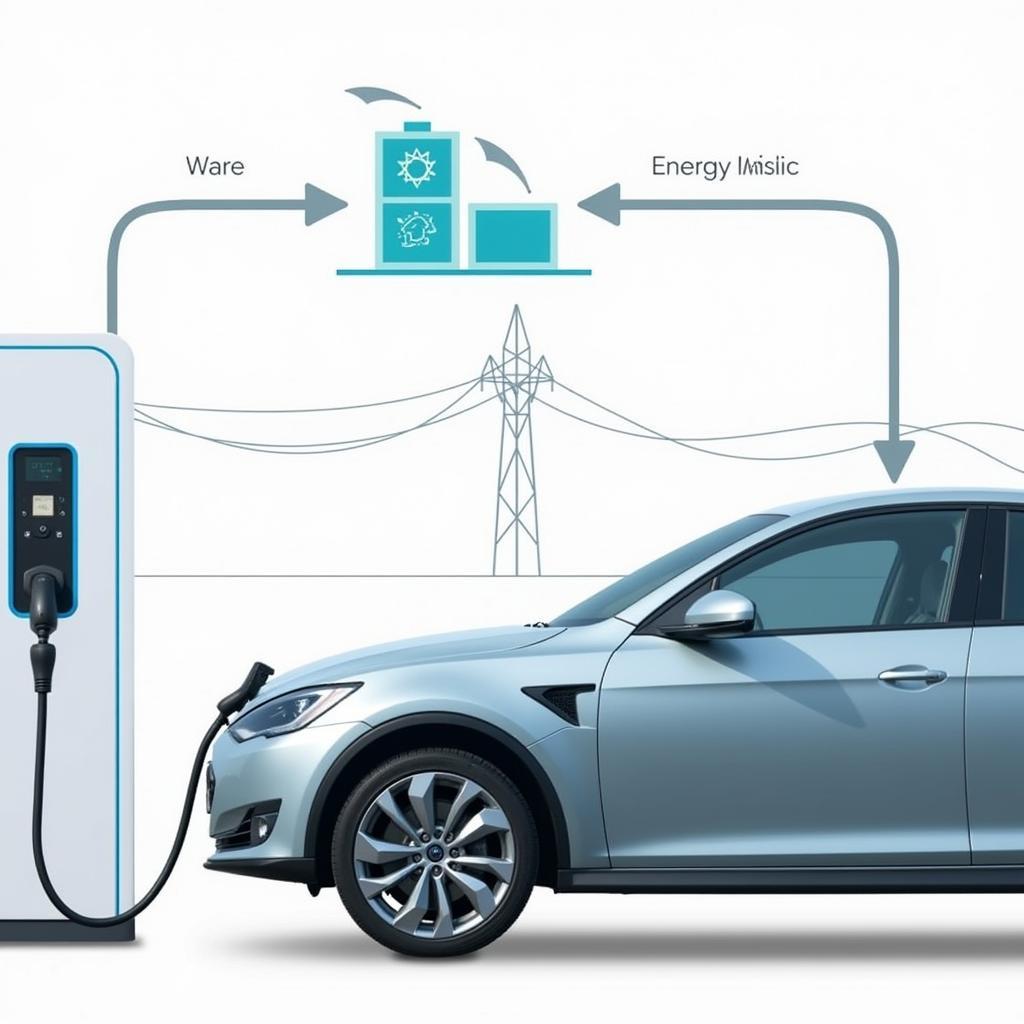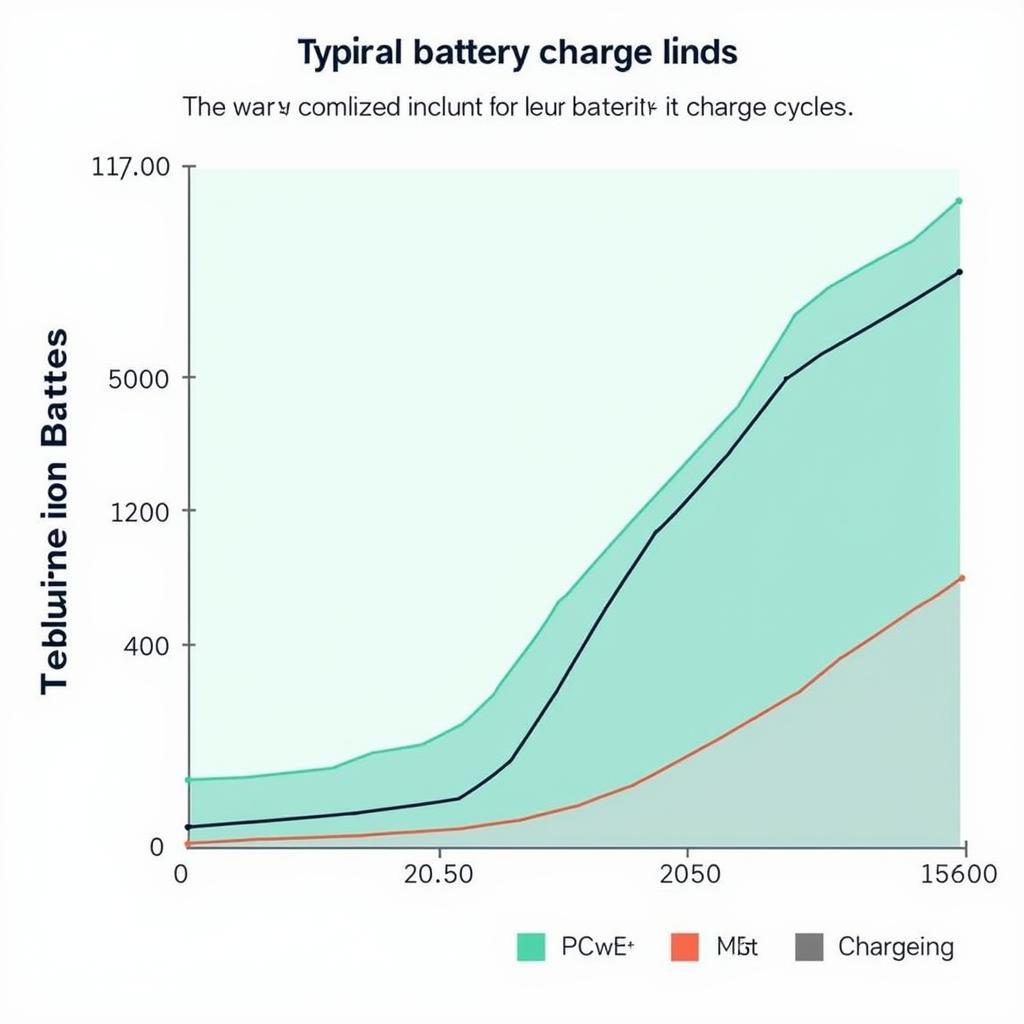Lithium-ion batteries for cars are rapidly becoming the industry standard, driving the shift towards electric vehicles (EVs) and hybrid electric vehicles (HEVs). Their higher energy density, longer lifespan, and lighter weight compared to other battery technologies have made them the preferred choice for automakers worldwide. But what exactly makes these batteries tick, and what are the key considerations for consumers and businesses in the automotive industry?
Understanding the Power of Lithium-Ion Batteries
Lithium-ion batteries for cars operate on the principle of ion movement between a positive electrode (cathode) and a negative electrode (anode). During discharge, lithium ions flow from the anode to the cathode through an electrolyte, creating an electrical current that powers the vehicle. Charging reverses this process, sending lithium ions back to the anode. This electrochemical process is what distinguishes lithium-ion batteries from traditional lead-acid batteries found in conventional gasoline-powered cars. Looking for the coolest rides? Check out these club cars.
 Lithium-Ion Battery Components Diagram
Lithium-Ion Battery Components Diagram
Key Advantages of Lithium-Ion Batteries in Cars
Several factors contribute to the popularity of lithium-ion batteries for cars:
- High Energy Density: They store more energy per unit weight than other battery types, enabling longer driving ranges.
- Longer Lifespan: Lithium-ion batteries can withstand hundreds or even thousands of charge-discharge cycles.
- Lightweight: Their reduced weight contributes to improved vehicle efficiency and performance.
- Low Self-Discharge Rate: They lose charge slowly when not in use, minimizing the need for frequent recharging.
- No Memory Effect: Unlike older battery chemistries, they don’t suffer from reduced capacity if not fully discharged before recharging.
 Electric Vehicle Charging with Lithium-Ion Battery
Electric Vehicle Charging with Lithium-Ion Battery
What are the Different Types of Lithium-Ion Batteries Used in Cars?
Different lithium-ion chemistries are employed in EVs, each with its own characteristics. Some common types include:
- Lithium Nickel Manganese Cobalt Oxide (NMC): Offers a good balance of energy density, power, and lifespan. It is widely used in many EVs today.
- Lithium Iron Phosphate (LFP): Known for its enhanced safety and longer lifespan, though with slightly lower energy density compared to NMC.
- Lithium Nickel Cobalt Aluminum Oxide (NCA): Offers high energy density, making it suitable for long-range EVs, but it can be more expensive.
How Long Do Lithium-Ion Car Batteries Last?
The lifespan of lithium-ion batteries for cars varies depending on usage, charging habits, and environmental factors. Most manufacturers offer warranties of 8-10 years or 100,000-150,000 miles, but many batteries are expected to last significantly longer. For a glimpse into the automotive future, explore the innovations in future car technology.
Maintaining Your Lithium-Ion Car Battery
Proper maintenance can extend the life of your lithium-ion battery:
- Avoid Extreme Temperatures: Extreme heat or cold can degrade battery performance.
- Optimize Charging Habits: Avoid frequently charging to 100% or letting the battery deplete completely.
- Use Recommended Charging Equipment: Using the manufacturer’s recommended charger ensures optimal charging and minimizes stress on the battery. Want to learn more about electric cars? Check out byd electric cars.
“Maintaining a healthy charging routine is crucial for maximizing the longevity and performance of your lithium-ion car battery,” advises Dr. Emily Carter, a leading battery researcher at the Automotive Energy Institute. “Think of it like refueling your body with nutritious food – consistent and balanced charging habits will keep your battery running smoothly for years to come.”
 Lithium-Ion Battery Life Degradation Graph
Lithium-Ion Battery Life Degradation Graph
Conclusion
Lithium-ion batteries for cars are revolutionizing the automotive landscape, offering a cleaner, more efficient, and sustainable alternative to traditional gasoline engines. Understanding their functionality, advantages, and maintenance requirements is key to maximizing their lifespan and enjoying the benefits of electric mobility. The future of driving is electric, powered by the advancements in lithium-ion battery technology. Interested in specific car brands? Take a look at byd cars usa. Looking for something different? Explore the world of radio controlled cars.
FAQ
- What is the average cost of replacing a lithium-ion car battery?
- Are lithium-ion car batteries recyclable?
- How safe are lithium-ion batteries in car accidents?
- What is the environmental impact of producing lithium-ion batteries?
- How does the performance of lithium-ion batteries change in cold weather?
- What are the latest advancements in lithium-ion battery technology for cars?
- How does fast charging affect the lifespan of a lithium-ion car battery?
When you need support, please contact WhatsApp: +1(641)206-8880, Email: [email protected] Or visit us at: 276 Reock St, City of Orange, NJ 07050, United States. We have a 24/7 customer service team.


